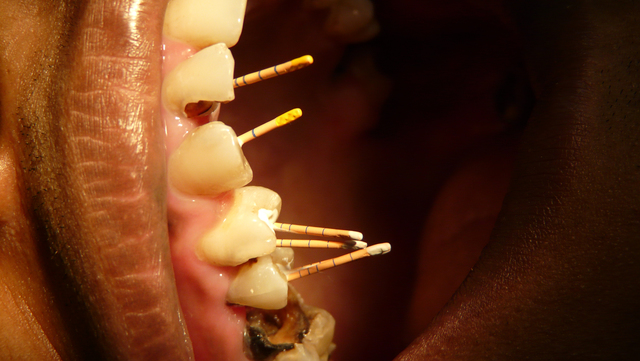Learn How a Root Canal Frees You From Toothaches
Most people think that dental treatments come with a lot of pain, which is not true at all. Despite dental terms like “implants”, “extraction”, “cautery”, and “root canal” — as treatment processes, they do not hurt. In fact, a root canal is one of the more reliable solutions to address severe toothaches.
And speaking of a root canal treatment, it is highly recommended if you have been suffering from a toothache due to a cavity or a mouth injury. Your dentist will recommend it if your tooth still happens to have a good structure.
The Root Canal Process

What happens in a root canal treatment is the dentist gets rid of the diseased or dead pulp that is causing the pain you are feeling. Afterward, the hollowed tooth is cleaned and disinfected before “repair work” is carried out.
Before the commencement of the repair work, your dentist will shape the hole that used to be filled by the pulp. This part of the process is crucial to ensure the proper application of the filler and sealant.
Once the cleanup and shaping are done, your tooth will be like an empty shell. Filling, then, will be applied. The filling is a rubber-like material called gutta-percha. Your dentist will fill every crevice of your hollowed tooth with gutta-percha, and it will cover or protect your dental nerves to prevent pain or sensitivity from exposure to various elements in your mouth.
For tooth restoration, there are two options to choose from: a tooth-colored filling and a dental crowns. Fort Lauderdale dentists recommend a dental crown for the cosmetic restoration of a severely damaged tooth.
The Benefits of Getting a Root Canal
If you are already toying with the idea of getting a root canal but are still on the fence, you may want to seriously consider the following advantages of getting one:
1. No more toothache.
With the infected or inflamed pulp gone, you are automatically freed from the pain. Plus, with the restoration that follows after the removal of the damaged pulp, nerve endings are covered and protected to prevent exposure to various elements in your mouth that can cause sensitivity.
2. You can eat comfortably.
With no more pain or sensitivity, you can already eat with ease. No more going on a fast or limiting yourself to soup and beverages in order to avoid further discomfort.
3. You regain a perfect-looking tooth.
This is particularly true if you opt to have your tooth covered with a dental crown. With this in place, nobody would think that your tooth was ever damaged.
4. No more strain on surrounding teeth.
For sure, when your tooth was hurting, you did everything to avoid having anything come in contact with it. This means your other teeth bore the pressure of such activities. After the root canal and restoration, you can use that tooth again for chewing up food.
Other Important Considerations
Remember that there is absolutely no pain during the process because local anesthesia is administered via injection. When it takes effect, the area surrounding the tooth will feel completely numb. The dentist will not start drilling an access hole for the root canal until he or she is sure that the area is already numb.
After-effects are common. Once the anesthesia has worn off, you may feel sensitive in the mouth. For this, dentists prescribe antibiotics to prevent infection as well as to speed up the recovery process. For the slight pain that you may feel, dentists can also prescribe a pain reliever.
As for the cost, a complete root canal package comes at a price. But, you can discuss your payment options with your dentist especially if you do not have insurance to cover the expense of the treatment. Most dental clinics nowadays provide patients with discounts for cash payments or offer staggered payment options.
Another thing you can do is to come up with a cash payment plant with your dentist especially if you are keen on getting other treatments after the root canal as this may also lead to savings.
Lastly, inquire about their credit card or check payment facility. This is a good payment method if you do not have sufficient cash with you at the time you badly need a root canal. You can save money (or wait for your payday) to cover the cost of the treatment until your credit card or bank cut-off date.

Leave a Reply